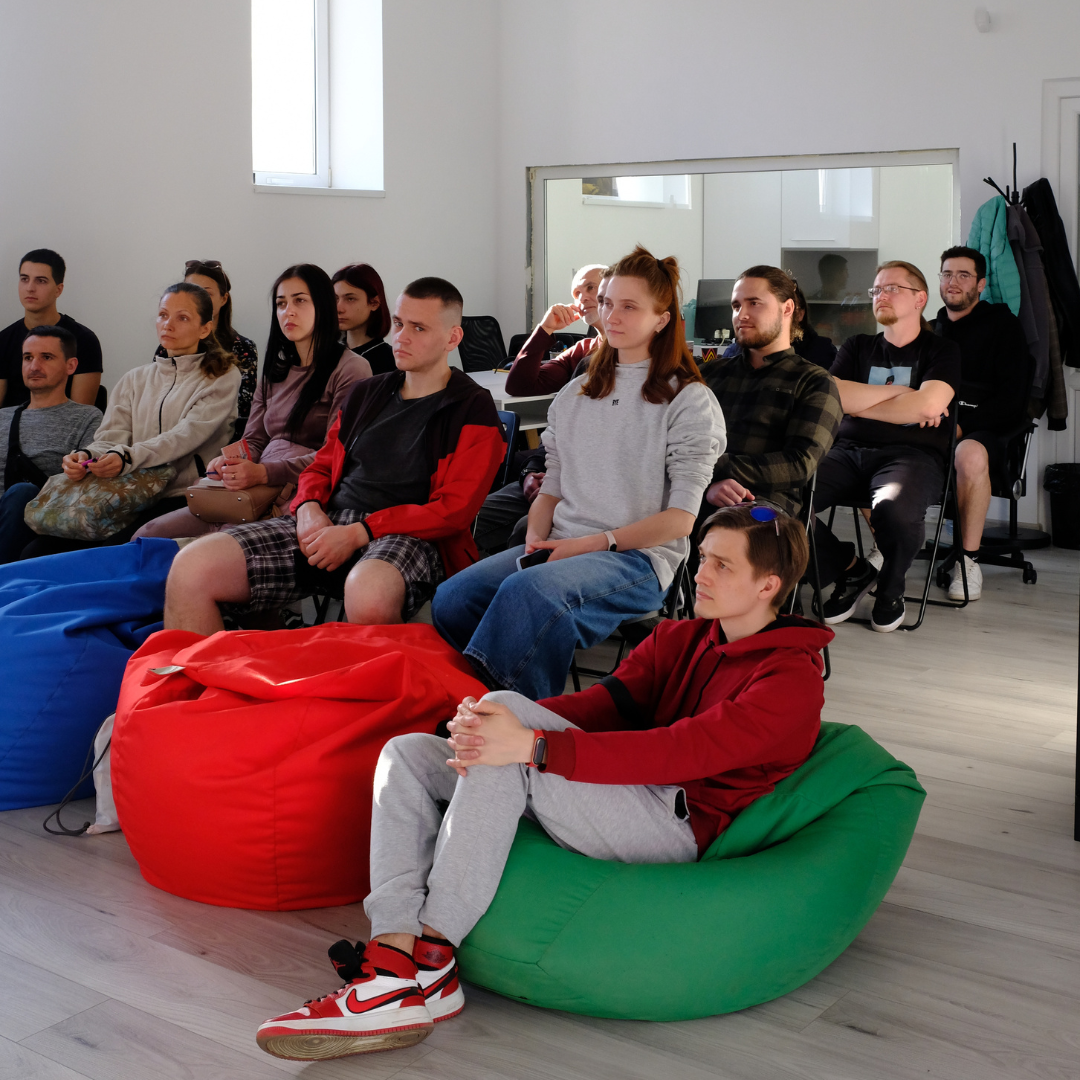
Andrii Tuzhykov, poet, writer, civil society activist and IT developer, describes the Laboratory of Culture, the NGO he helped to establish and now runs, as a logical progression of Chernivtsi’s centuries-old cultural heritage. Andrii is helping to build its “future climate of culture and an ecosystem for the creative industries.”
As one of Ukraine’s most important educational and architectural sites, the western Ukrainian city of Chernivtsi is one of Western Ukraine’s main cultural centres and was once dubbed “Little Vienna”.
Since 2016, Andrii’s Laboratory of Culture has worked to promote art through digital media in Chernivtsi and in surrounding towns.
Andrii believes that art has a central role in Ukraine’s future, but that artists need a helping hand if they are to fulfil their financial and creative potential.
“The creative industry is a very important part of Ukrainian society, but it can be very difficult for artists to monetise their work. We wanted to help them do that,” he explains. “I firmly believe that creativity and democracy are inter-linked. Creatives are often very reflective people, who are highly supportive of democracy and less likely to be involved in corruption. Their work can have a cumulatively positive effect on their families and on wider society.”
Onset of full-scale war – initial focus on humanitarian aid
He admits that he and his team were already preparing for the worst when the full-scale Russian invasion began on 24 February.
“We had started to prepare, and we told people to evacuate if they could and to prepare their basements as bunkers. During the initial weeks of the war, we worked closely with other local NGOs to provide humanitarian aid to the many internally displaced persons who arrived in Chernivtsi. We took over a local cocktail bar near our office and used it as a kitchen to prepare food. We bought food and medicine and found accommodation for them. We sent medical supplies and equipment to the army. It’s hard to remember all the things we did then; we did so much,” he says.
Six weeks into the full-scale war, with a widescale humanitarian effort now launched, Andrii and his colleagues began to ask themselves what role the creative industry could play at this challenging time.
“Working with the creative industry was low in the list of people’s priorities, of course, as most effort was being put into helping people. But I was convinced that if we could help artists help themselves at this time, this could also help wider society,” he says.
Launch of creative hub
With EED support, the Laboratory of Culture decided to launch a hub for creative industries, offering a training programme for the development of IT tools and virtual reality and with a focus on social entrepreneurship.
“Our idea was to recruit around 25 students, all people from the creative industry, and to give them the technical background and soft skills they needed so that they could launch their own products and become independent,” Andrii explains.
They announced an open call, and they received over 200 applications, far more than they expected.
The final shortlist of students consisted of artists and included recently arrived internally displaced persons, ranging in age from 15 to 50.
“We had the technical equipment we needed in the hub to teach them new technical skills. And we also provided practical information to them too. We explained how to register a company in Ukraine. We gave them information on the legalities of running a company in Ukraine. We also gave them advice on networking with local and international clients, and on how to market their products,” he says.
Students then had a chance to take part in “hackatons”, where they had a two-day window to develop their ideas, with support from staff.
Four winning scholarships
The Laboratory then offered four scholarships to the students with the projects Andrii describes as having “the most potential to positively impact our city.”
He and his team mentored these winning students over several weeks, as they worked in the hub to further develop these projects. These are now at a pre-commercial stage of development.
Andrii is excited at the potential of the proposed products. “One project brings to life old and modern-day postcards of Chernivtsi. Another lets readers interact with characters from a book by a local writer via augmented reality. A third one brings to life the sculptures of the city,” he says.
The staff have now also developed an online version of the programme that focuses on developing the technical skills of artists, for the many people who were not able to attend the residency programme. “We wanted to keep in touch with them and to at least share some of the content with them,” he says.
Andrii believes that the creative hub is a hugely motivating centre for the creative industry. “The EED grant enabled us to formalise the project, to buy the equipment and infrastructure we needed. Now we have the potential to help far more people.”
If he has his way, Chernivtsi’s new nickname might soon be “Little Silicon Valley”.
This article reflects the views of the grantee featured and does not necessarily represent the official opinion of the European Endowment for Democracy, the European Commission or any other European State or other contributors to EED.